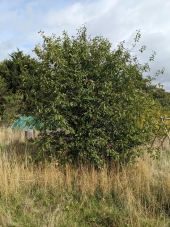

Riona Abhainn wrote:Took a look at the website, looks like a cool idea. Nothing in my area yet, but things take time to spread, so I understand. I think this has a lot of potential to grow and become popular though!




.jpg)
.jpg)


Moyra Fowler wrote:
S Tonin wrote:Moyra, how long do you let the seeds sprout before roasting? I really like powdered roasted lentil sprouts in breads and soups, so I'm definitely going to have to try this.
Haven't been too scientific about it, we usually let the seeds soak overnight for sprouting, then add a bit of salt to the water, then a couple of hours later remove from water, dry them off a little, then roast in the oven. The sprouting makes the seed shell easier to eat or peel off. If they aren't sprouted they shell can be too woody to eat. We aren't soaking them long enough to get proper sprouts, but we usually look at squash seeds as a snack to munch on like nuts. I had never even considered making actual sprouts out of them, I have no idea how that would work, but it's worth a try.